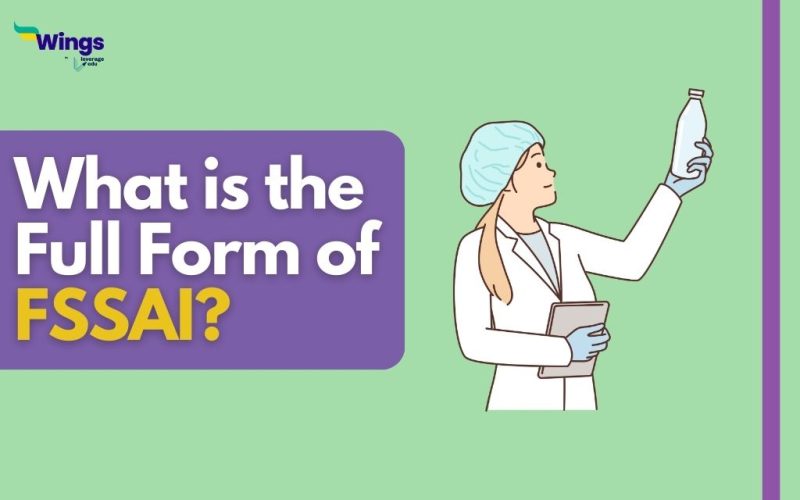The full form of FSSAI is Food Safety and Standards Authority of India. The organisation is part of the Indian government’s Ministry of Health and Family Welfare. It strives to develop scientific standards for the control, inspection, and regulation of food production, storage, selling, distribution, and import in order to ensure that healthy and nutritious foods are available to humans.
FSSAI Main Functions
Table of Contents [show]
- Lawmaking to establish food safety requirements.
- Authorising standards for accrediting food testing labs.
- Providing technical help and scientific advice to the Central Government.
- Conducting surveys to collect data on food consumption and food pollution.
- Spread data to enhance food quality awareness.
- Conduct training programmes to educate those who have worked in or wish to start a food business.
Important Points about FSSAI
- FSSAI was formed under the Food and Safety Act of 2006.
- The company’s headquarters are in New Delhi, India.
- It has regional offices in Chandigarh, Delhi, Lucknow, Mumbai, Guwahati, Kolkata, Cochin, and Chennai.
- For the testing of adulterated products, there are four referral laboratories and 72 local food testing labs.
- The organisation has the ability to conduct chemical research on the food products of numerous companies.
- It also makes progress against enterprises that do not assure proper nutrition and food quality. For example, FSSAI prohibited the sale of Maggi noodles.
- FSSAI is authorised to issue licences to Food Business Operators who follow its rules and practises.
- Anyone working in the food industry, such as a food processor, food trader, or hotel or restaurant owner, must now have a licence.
Procedure for Applying for FSSAI Basic Registration
Every food business operator who manufactures, processes, stores, distributes or sells food goods is obliged to obtain an FSSAI Registration or Licence.
In many ways, FSSAI Registration differs from FSSAI Licence, such as the size and nature of the firm. FBO must obtain the necessary registration or licence.
Food packages are labelled with a 14-digit registration or licence number. The 14-digit registration number contains extensive information on the assembly state and the producer’s permit. The main goal of the registration procedure is to increase FBO accountability for maintaining food product quality. The Food Safety and Standards (Licencing and Registration of Food Businesses) Regulations, 2011, govern the licencing and registration process.
Also Read: Food technology courses
Hope now you know all about the full form of FSSAI. Visit the General Knowledge page to discover more intriguing articles like these.
 One app for all your study abroad needs
One app for all your study abroad needs















 45,000+ students trusted us with their dreams. Take the first step today!
45,000+ students trusted us with their dreams. Take the first step today!
